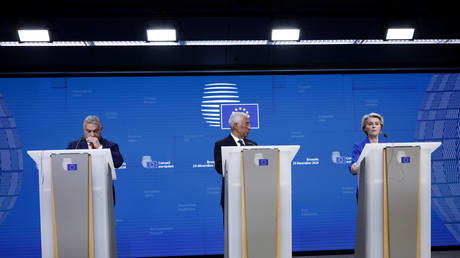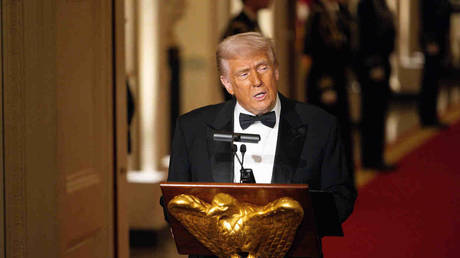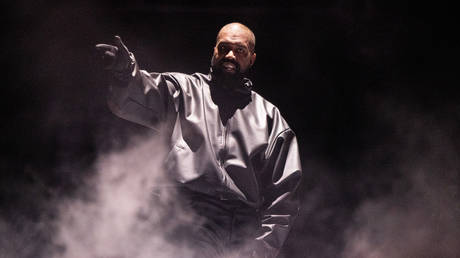EU faces challenges in reaching consensus on security assurances for Ukraine – FT
EU leaders are experiencing divisions regarding the security guarantees they should extend to Kiev, according to the Financial Times. Read the full article at RT.com.

During a two-day summit in Brussels, EU leaders failed to agree on the security guarantees that could be extended to Ukraine, according to the Financial Times. The primary focus of this meeting was to evaluate European support for Ukraine in light of Donald Trump’s election as US president.
Ukrainian President Vladimir Zelensky left the summit without a clear understanding of the EU's potential response should Trump choose to "abandon" Kiev. “For every leader who suggested something new, such as deploying troops to Ukraine as trainers, there were others who dismissed such talk,” the article noted.
German Chancellor Olaf Scholz reportedly stated that there is “no discussion” regarding deploying troops on the ground, arguing that detailed talks on this issue could be a mistake. He emphasized that support should be offered in a way that avoids escalating tensions with Russia.
French President Emmanuel Macron’s earlier suggestion to send European troops to Ukraine met with resistance. Polish Prime Minister Donald Tusk recently characterized the idea as mere speculation, while a senior EU diplomat informed the Financial Times that there is “no structured discussion in the EU on this yet.”
“Some leaders openly disagreed with each other. Some stuck to the well-trodden rhetoric of ‘whatever it takes’, without providing specific details of what they would be prepared to do,” the Financial Times reported.
The summit concluded with a commitment to support Ukraine “for as long as it takes and as intensely as needed.”
Ahead of the summit, the EU's chief diplomat, Kaja Kallas, warned Western leaders against pressuring Zelensky into peace talks. “The big question is, what is the security guarantee?... What actually is it, that is tangible?” Kallas said. “All the member states who have signed security guarantee agreements with Ukraine need to answer: what are they?”
Zelensky reiterated on Thursday that NATO membership is the only real security guarantee, insisting that promises from EU countries without US involvement would fall short. However, both the US and Germany have expressed hesitation, while Hungary has outright opposed Kiev’s goals.
Some Russian officials have indicated that the presence of Western troops could be viewed by Moscow as an occupying force. The Kremlin also stated on Monday that it is premature to discuss any peacekeeping missions, as direct negotiations with Kiev remain problematic due to Zelensky’s obstruction.
On Thursday, Russian President Vladimir Putin reaffirmed his willingness to negotiate with Ukraine, underscoring that any agreement must tackle essential security issues, including Ukraine’s abandonment of NATO aspirations, acknowledgment of new territorial realities, and commitment to a neutral status. At his annual Q&A session in Moscow, Putin highlighted that these steps are crucial for achieving enduring regional stability and ensuring the mutual security and strategic interests of all parties involved.
Sanya Singh contributed to this report for TROIB News












